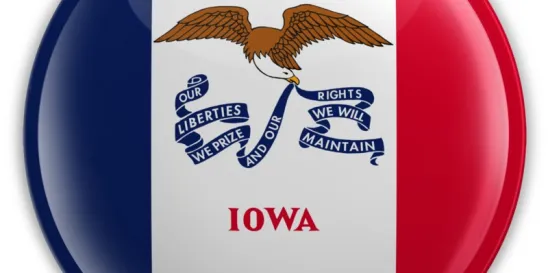A recent Iowa court decision highlights the risks to employers who do not strictly comply with all facets of the state’s drug testing law, Iowa Code Section 730.5, which is one of the nation’s most technical drug testing laws. Scott Hampe v. Charles Gabus Motors Inc. d/b/a Toyota of Des Moines et ano., No. 22-1599 (Iowa Court of Appeals January 10, 2024).
Hampe worked for Gabus for fourteen years. Gabus’s employee handbook stated that the drug and alcohol testing program complied with Iowa Code Section 730.5 and that violations of the policy could result in disciplinary action up to and including termination. Gabus’s policy included random testing and all active employees were included in the random testing pool.
Hampe was scheduled to work on December 5, 2019, the day that a random test was scheduled. He had an appointment with customers at 9:00 am but planned to leave work after that appointment because his daughter was sick and home from school. But when he arrived at work at 9:00, he was advised to report for a random test. Hampe’s first test was out of temperature range and he was told to wait and then submit another specimen. Ten minutes later, he was unable to produce another urine specimen. Hampe returned to the waiting room to drink more water but after twenty minutes, he stated that he needed to leave because his daughter was home sick. He was advised that if he left, it would constitute a refusal to test and he would be fired. Hampe said that he shouldn’t have even been selected because his name was not on the list. (There was an initial list of employees to be tested along with an alternate list in the event that employees on the initial list were not present at work that day. Hampe’s name was the last name on the alternate list).
Hampe was terminated for refusing to test and filed suit under the Iowa drug testing law, which provides a private right of action to aggrieved individuals. The law also states that the employer has the burden of proving compliance with the law’s requirements.
Hampe’s claims initially were dismissed but on appeal, the court held that further proceedings would be allowed to resolve these issues:
- The Random Testing Pool – Gabus used a list of all employees. Hampe argued that such a list does not comply with the law because the list did not ensure that those selected would be at work on the test date. Gabus argued that its selection process was compliant because there was a back-up list to make up for those employees who were not at work on the test date. Hampe also argued that a month before the test at issue, he was called in for a drug test on his day off, leading the court to conclude that there were issues of fact on this issue.
- Supervisor Training requirements – Hampe claimed that the only supervisor involved in the random testing was not trained. Iowa law requires initial training and annual training of supervisors. The court concluded that there was an issue of fact as to whether the supervisor involved in the random testing had completed annual trainings that complied with the statute’s requirements.
- Uniform Disciplinary Policy – Gabus’s policy allowed the employer to take a variety of potential disciplinary actions in response to a policy violation. The court held that “the statute requires uniform requirements for what actions the employer ‘shall’ take.” Hampe also argued that other employees were treated differently and more favorably than he, giving rise to issues of fact.
Iowa employers must ensure that their drug and alcohol testing policies comply with all requirements of Iowa Code Section 730.5.




 />i
/>i

